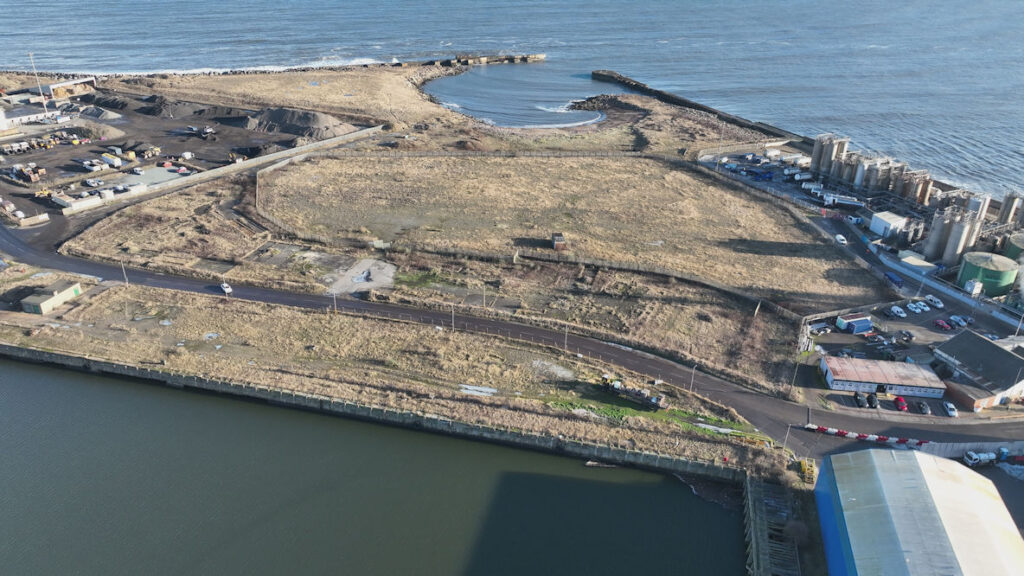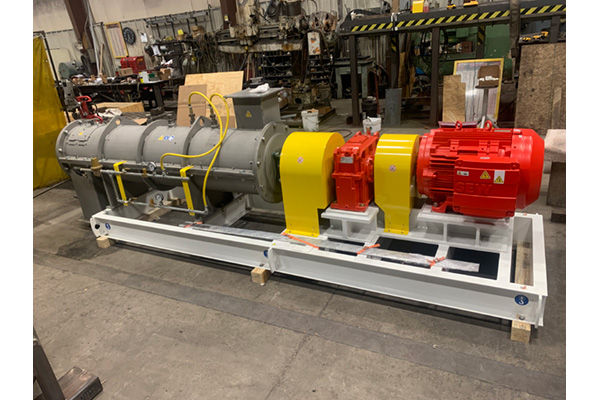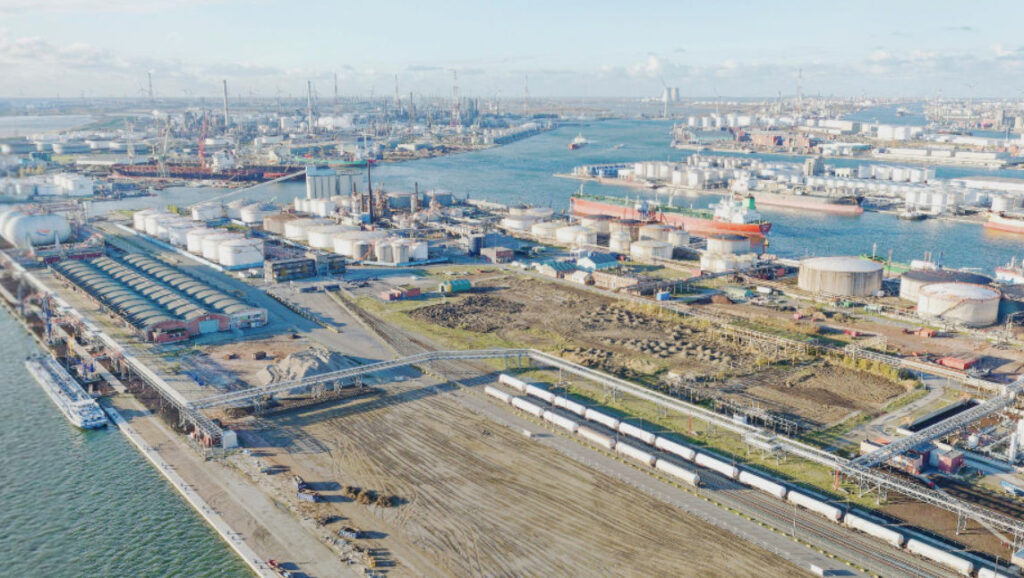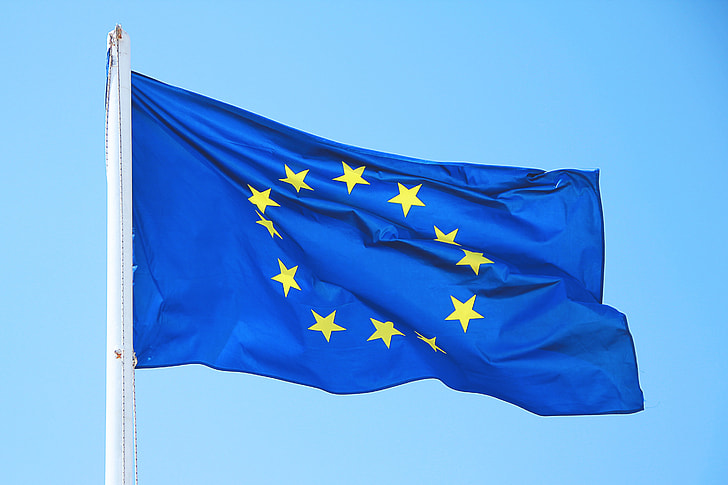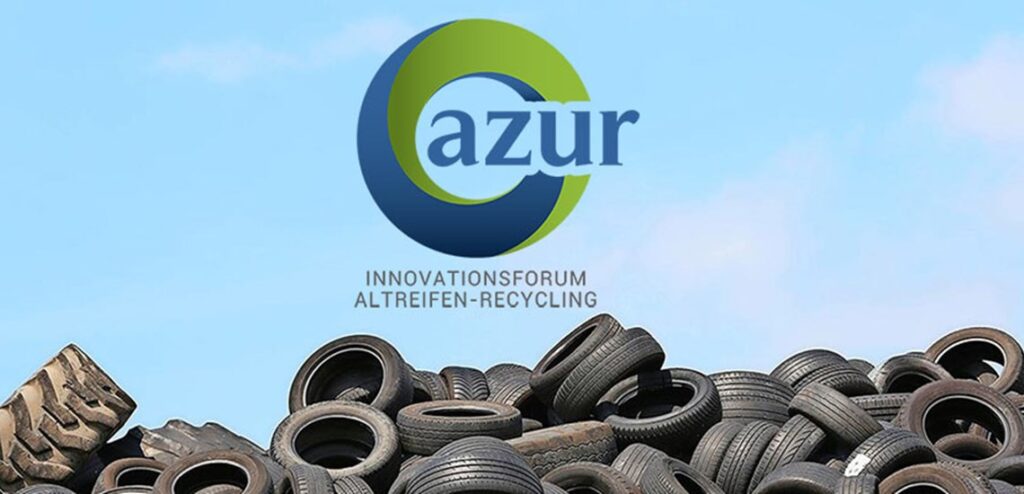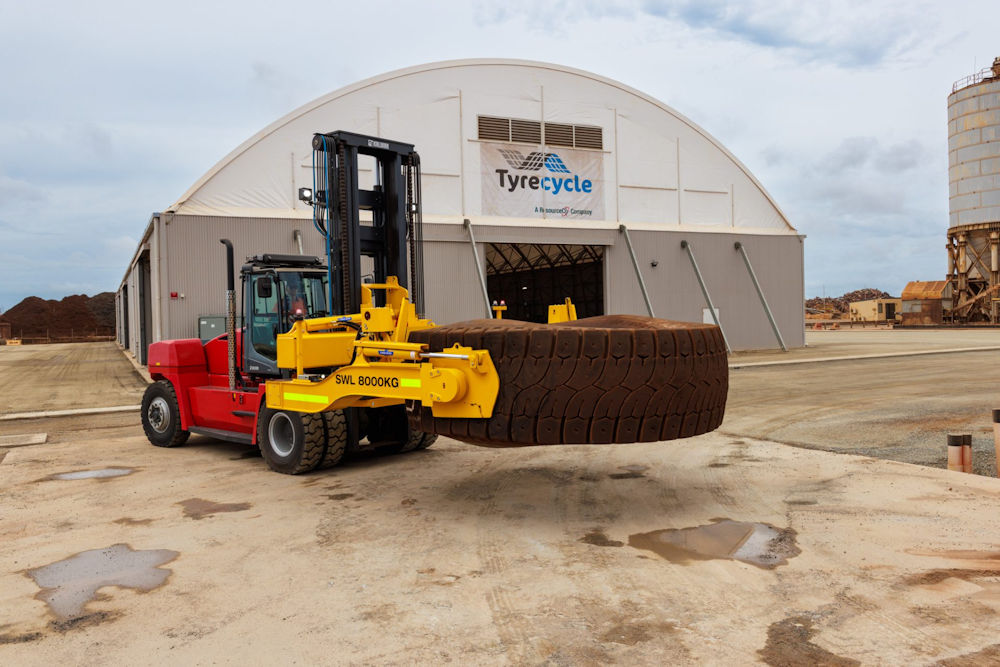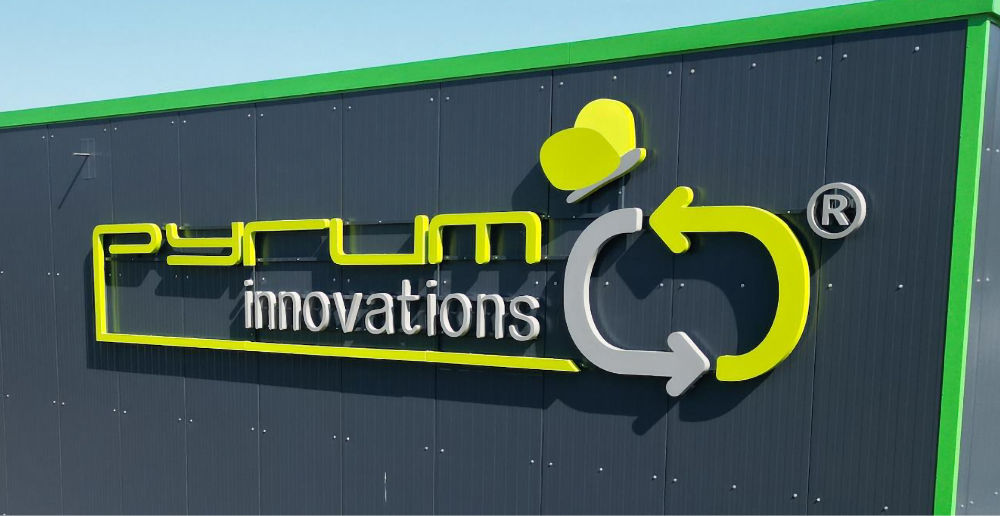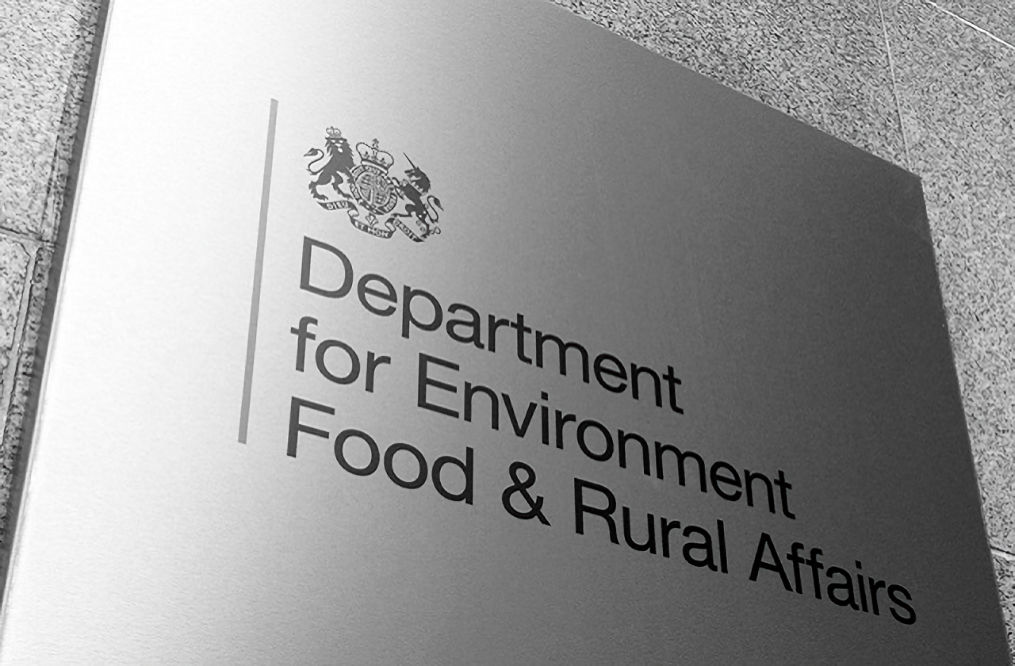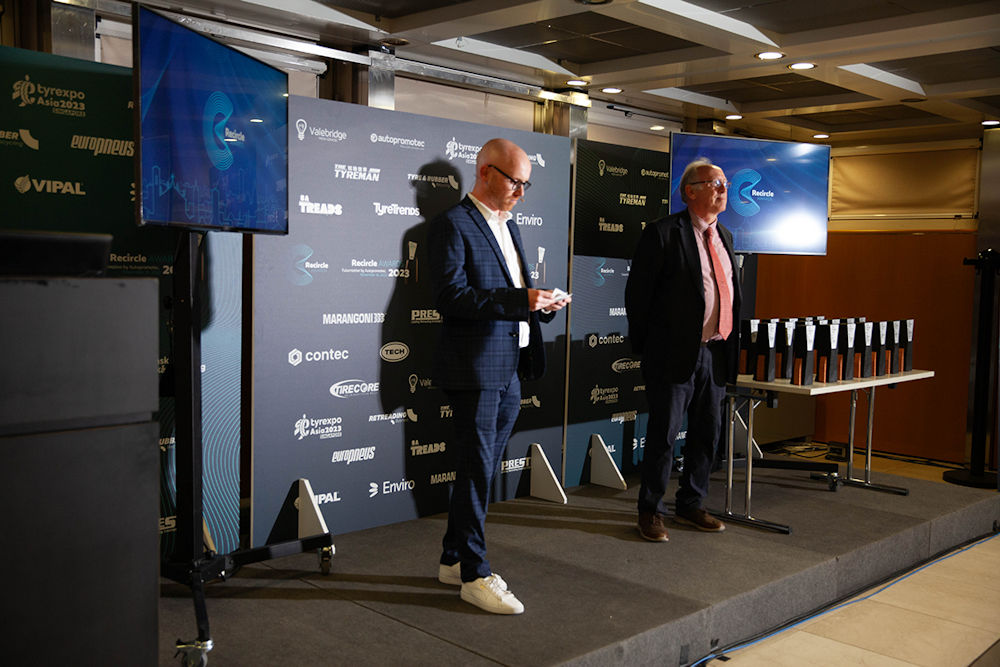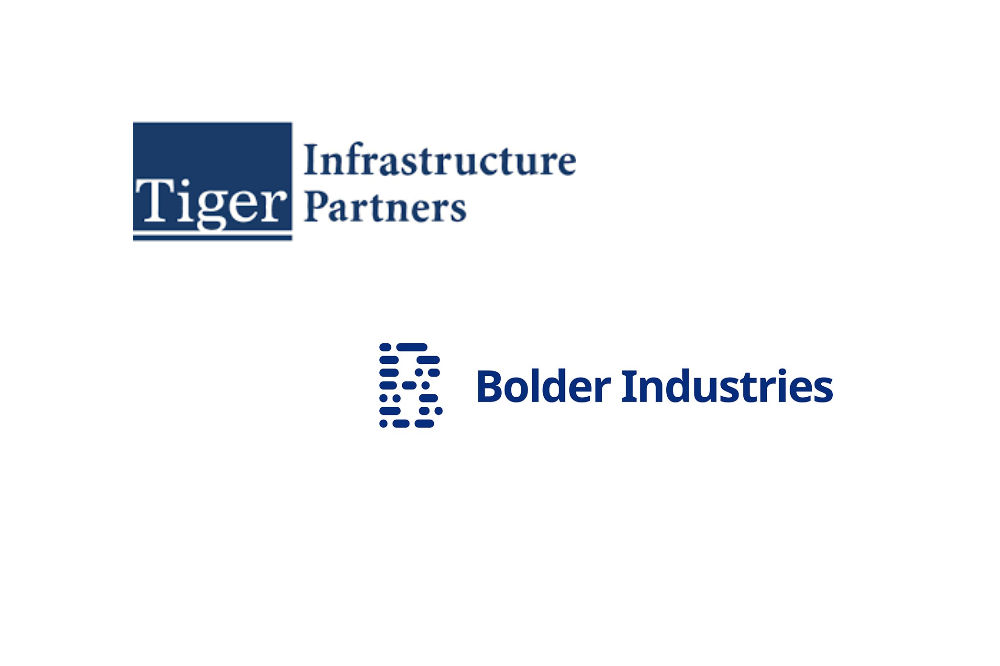Wastefront is the UK’s First Tyre-to-Fuel Facility to Fast-Track Global Sustainable Aviation Fuel Production and is now under construction
Developing any commercial scale pyrolysis operation is a long term proposition, and Wastefront has now reached the stage if breaking ground for its now plant in the UK.
The £100 million Sunderland plant is the UK’s first large-scale waste tyres processing facility dedicated to the SAF value chain, positioning IAG-backed Wastefront as a key player in working towards the UK’s ambitious targets to reduce carbon emissions.
Wastefront has announced that it has officially commenced construction on its groundbreaking £100 million tyre-to-fuel facility at the Port of Sunderland. The project marks a significant step in the UK’s push for sustainable aviation fuel (SAF) production, while delivering a major economic boost to the North East, and will create more than 100 local jobs. International Airlines Group (IAG) was the first European airline group to aim for 10% SAF usage by 2030 and in January this year, the company announced an investment in Wastefront.
The facility’s first commercial phase will be starting up at the end of 2026, with the second phase launching a year later. Once fully operational, the plant will process 10 million end-of-life tyres annually – making it the largest facility of its kind in Europe – converting them into tyre-derived oil for refining into SAF and other sustainable fuels. With around 55 million tyres reaching the end of their life per year in the UK, Wastefront’s fully circular process will address a pressing waste issue.
The Sunderland facility, the UK’s first fully circular tyre-to-fuel plant, utilises pyrolysis technology to convert end-of-life tyres into tyre-derived oil, which will be refined into SAF. Wastefront’s system is self-sustaining, recycling the gases generated during pyrolysis to power its operations. By 2030, Wastefront aims to operate four large-scale plants, collectively producing 128,000 tonnes of oil annually – enough to yield approximately 90,000 tonnes of SAF1.
The reduction of carbon emissions from aviation is critical for the industry. The UK’s SAF mandate – introduced on 1 January 2025 – requires at least 10 per cent of all jet fuel used in UK flights to come from sustainable feedstocks by 2030, rising to 22 per cent by 2040. However, domestic SAF production remains significantly short of the target of 1.2 million tonnes needed by 2030.
The project strengthens the North East’s position in the UK’s growing net zero economy. According to the Energy and Climate Intelligence Unit (ECIU), the UK’s net zero sector grew by 9 per cent in 2023, compared to just 0.1 per cent for the broader economy. Wastefront’s investment highlights the region’s leadership in sustainable innovation, positioning Sunderland at the forefront of the transition to more sustainable fuels.

